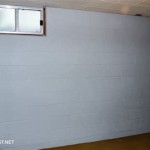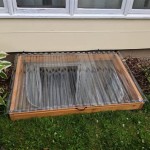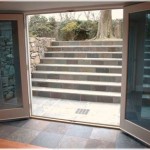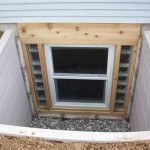Ideal Humidity Level In Basement During Summer
When the weather outside becomes increasingly hot and humid during the summer season, concerns about maintaining proper moisture levels inside your basement often arise. While a certain degree of humidity is necessary to ensure a healthy environment, excessive moisture can lead to various adverse effects, including mold growth, mildew, and structural damage. It is crucial for homeowners to understand the ideal humidity level for their basements during the summer months and implement effective strategies to regulate it, thereby protecting their property and ensuring the well-being of occupants.
The optimal humidity range for a basement during the summer is generally between 30% and 50%. Maintaining humidity within this range helps prevent condensation, which can cause moisture damage to walls, floors, and stored items. Additionally, keeping humidity levels in check inhibits the growth of mold and mildew, which thrive in damp environments and can pose health risks to occupants. Higher humidity levels can also make the basement feel stuffy and uncomfortable, especially during the warmer months.
Several factors can contribute to increased humidity in basements during the summer, including warm, moist air entering through open windows or doors, water seepage through cracks in the foundation or walls, and condensation on cold surfaces. To effectively manage humidity levels, it is essential to identify and address the sources of moisture. This may involve repairing any leaks, installing a dehumidifier to remove excess moisture from the air, or using a ventilation system to circulate fresh air and reduce moisture buildup.
Using a dehumidifier is a common and effective method for controlling humidity in basements. Dehumidifiers work by drawing in moist air, condensing the moisture into water, and releasing the drier air back into the room. The collected water is stored in a reservoir that must be emptied periodically. When selecting a dehumidifier, it is important to consider the size of the basement and the desired humidity level. A dehumidifier with a larger capacity will be able to remove more moisture from the air in a shorter amount of time.
Proper ventilation is another crucial aspect of humidity control in basements. By allowing fresh air to circulate, ventilation helps reduce moisture levels and prevents the buildup of stale air. Installing exhaust fans in the basement can help remove excess moisture, while opening windows and doors on opposite sides of the basement can create cross-ventilation and promote air movement. However, it is important to note that during periods of high humidity outdoors, opening windows and doors may actually increase humidity levels in the basement.
In addition to using dehumidifiers and ensuring proper ventilation, there are other practical steps homeowners can take to manage humidity in their basements during the summer. These include:
- Use moisture-resistant materials: When remodeling or finishing a basement, choose materials that are resistant to moisture, such as ceramic tile, vinyl flooring, and mold-resistant drywall.
- Elevate stored items: Keep stored items off the floor and away from walls to prevent moisture damage. Use shelves, pallets, or storage containers to elevate items and promote air circulation.
- Avoid drying clothes in the basement: The moisture released from drying clothes can significantly increase humidity levels in the basement. If possible, dry clothes outdoors or in a well-ventilated area.
- Check for and repair leaks: Regularly inspect the basement for any leaks, especially around windows, doors, and pipes. Even small leaks can contribute to increased humidity levels.
- Use a hygrometer: A hygrometer is a device that measures humidity levels. Place a hygrometer in the basement to monitor humidity levels and adjust your dehumidifier or ventilation accordingly.
Maintaining proper humidity levels in a basement during the summer is essential for preventing moisture-related problems and ensuring a healthy and comfortable environment. By understanding the ideal humidity range, identifying sources of moisture, and implementing effective humidity control strategies, homeowners can protect their basement from damage and create a more enjoyable living space.

How To Lower Your Basement S Humidity Level

Hot In Here How To Maintain Ideal Indoor Humidity Summer

Dehumidifier Setting Chart What Should Be Set At

A Guide To Controlling Nc Home Humidity Newcomb And Company

What Is The Ideal Basement Humidity Level Epp Foundation Repair

The Ideal Humidity Level For Your Basement Reliable Waterproofing

How To Lower Your Basement S Humidity Level

How To Lower Your Basement S Humidity Level

Humidity And Your Home Canadian Residential Inspe

How To Lower Your Basement S Humidity Level
Related Posts







